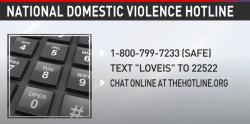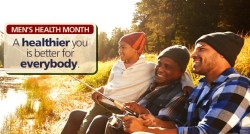
A Message from Tom Engels

As you know, HRSA has been helping to lead the charge in the fight against COVID-19. Our role in the response to the COVID-19 pandemic, the expansion of funding, changes in health care delivery, and the socio-economic impacts on the populations we serve, are transforming the way HRSA does business. So I want to take time to reflect on how far we’ve come since the beginning of the pandemic.
On behalf all of us at HRSA, thank you for putting in tremendous energy and countless hours to meet the needs of your communities during this time. We look forward to building on these achievements as we work together with you to achieve HRSA’s vision of Healthy Communities, Healthy People.
Thank you,
Tom Engels HRSA Administrator |
HHS Awards $107.2 Million to Grow and Train the Health Workforce

Today, the U.S. Department of Health and Human Services (HHS), through the Health Resources and Services Administration (HRSA), is announcing awards totaling $107.2 million to 310 recipients to increase the health workforce in rural and underserved communities. Recipients across 45 states and U.S. territories received funding to improve the quality, distribution and diversity of health professionals serving across the country.
"Supporting a strong health workforce is essential to improving health in rural and underserved communities," said HHS Secretary Alex Azar. "We’ve seen stark disparities in health and healthcare access contribute to the burden of the COVID-19 pandemic. As part of the Trump Administration’s work to address health disparities, these grants provide support for the training of healthcare workers in rural and underserved communities.
|
HHS Awards $8 Million to Expand COVID-19 Training and Technical Assistance for Health Centers

June 11 – The U.S. Department of Health and Human Services (HHS), through the Health Resources and Services Administration (HRSA), awarded $8 million to 73 organizations that provide training and technical assistance (T/TA) to HRSA-funded health centers nationwide. These organizations will provide critical COVID-19 resources to health centers, including support and expertise to advance health centers’ ability to prevent, prepare, and respond to the COVID-19 pandemic.
Primary Care Associations (PCAs) received nearly $6 million to conduct COVID-19 T/TA activities based on the needs of states and regions. National Training and Technical Assistance Partners (NTTAP) received $2.5 million to enhance their COVID-19 T/TA to health centers, including strengthening health center operations and capacity to ensure access to comprehensive primary care services.
|
New Funding Opportunity: Rural Communities Opioid Response Program – Neonatal Abstinence Syndrome
Application Deadline: July 20, 2020

HRSA's Federal Office of Rural Health Policy (FORHP) released a Notice of Funding Opportunity (NOFO) for the Rural Communities Opioid Response Program-Neonatal Abstinence Syndrome (RCORP-NAS). HRSA will award approximately 30 grants to rural consortia to reduce the incidence and impact of Neonatal Abstinence Syndrome (NAS).
View the funding opportunity on grants.gov.
FORHP will hold a webinar for applicants on Tuesday, June 23 at 2:00 pm EDT. A recording will be made available for those who cannot attend. Please reference page ii in the NOFO for the dial-in and playback information for the webinar. You can also contact ruralopioidresponse@hrsa.gov for questions pertaining to the NOFO.
Learn more about how HRSA is addressing the opioid epidemic.
|
Receive Claims Reimbursement in 30 Working Days

Health care providers who have conducted COVID-19 testing or provided treatment for uninsured individuals with a COVID-19 diagnosis on or after February 4, 2020 can request claims reimbursement through the COVID-19 Claims Reimbursement to Health Care Providers and Facilities for Testing and Treatment of the Uninsured program.
More than $110 million in claims have been paid for COVID-19 testing and treatment of uninsured individuals. Get started today and you can receive reimbursement within 30 working days.
|
Getting Started with the Provider Relief Fund for Medicaid and CHIP Distribution Webinar

HHS, through the Provider Relief Fund (PDF - 31 KB), expects to distribute $15 billion to eligible Medicaid and CHIP providers. Join a webcast on either June 23 or June 25 at 2:00 PM EDT to learn more about the application process.
Pre-register to reserve a spot (PDF - 31 KB).
|
Register for the Clinical Leaders Webinar – June 25

Dr. Luis Padilla, Associate Administrator of HRSA’s Bureau of Health Workforce (BHW), invites clinical leaders to the Leading in Uncertain Times webinar, a peer-to-peer forum for clinical leaders in rural and underserved communities. Register for this webinar, taking place on Thursday, June 25 from 2:00 to 3:00 PM EDT. Join us for a discussion with your peers about issues related to telehealth, student training staffing models, and provider wellness.
|
HRSA’s HIV/AIDS Bureau to Host Aging with HIV Webinar on June 25

HRSA’s HIV/AIDS Bureau will host a webinar entitled “Psychosocial and Support Needs for People with HIV who are Aging in the Ryan White HIV/AIDS Program” on June 25, 1:30 – 3:30 PM EDT. This is the second national HIV and aging webinar focused on addressing the psychosocial and support needs of aging adults with HIV. It will feature an epidemiologist, social gerontologist/medical sociologist, HIV advocate, and an AIDS Education and Training Center (AETC) director. Presentations will focus on epidemiological data, significance of psychosocial support services, impact of isolationism and HIV sigma, and community services. The target audience is Ryan White HIV/AIDS Program providers and people with HIV.
|
The Hidden Pandemic Behind COVID-19

In the U.S. and abroad, cases of domestic violence have tracked upward on the heels of the coronavirus. As prolonged social isolation and breakdowns in normal reporting have worsened conditions, experts say, clinicians are often the last line of defense. Cases of domestic violence, child abuse and sexual exploitation in the time of COVID-19 apear to be on the rise in emergency rooms and health clinics across the country since March, experts said in a recent HRSA webcast.
|
Saving Men's Lives

Men "live sick and die young," Dr. Salvatore Giorgianni of the non-profit Men's Health Network told HRSA staff on June 16 at a Men's Health Week observance. And much of the reason is men's attitudes about their health. "The figures are ominous," he said, especially in the time of COVID-19.
|
Dramatic Increase in Emergency Department Visits for Pediatric Mental Health

A new study published in Pediatrics shows a 60 percent increase in mental health-related visits to emergency departments by children ages 5 to 17 between 2007 and 2016. The study, which explored changes over time in how children have accessed the emergency department for mental health treatment, also found a 330 percent increase in visits due to deliberate self-harm. The majority of these visits occur at non-children’s emergency departments in both metropolitan and non-urban settings, which have been shown to be less prepared to provide higher level pediatric emergency care. MCHB’s Lorah Ludwig co-authored the study with colleagues at the Nationwide Children’s Hospital, many of whom collaborated in developing HRSA’s Critical Crossroads. This resource supports hospital emergency departments to better manage and coordinate care for children and adolescents in mental health crisis.
View the video and text abstracts in Pediatrics.
|
Children from Families Who Struggle Economically Have Increased Odds of Mental Health Conditions

A new study finds an association between family economic hardship and child mental health conditions. Published in the Journal of Children and Poverty by HRSA researchers, the study is based on data from the 2016 and 2017 National Surveys of Children’s Health, which is a nationally representative survey of U. S. children ages 0 to 17. Findings include that one in four children experienced family economic hardship during their lifetime, defined as difficulty getting by on the family’s income to cover the basics like food or housing. In addition, family economic hardship was associated with 84% increased odds of having an internalizing disorder such as anxiety and/or depression, and 53% increased odds of having behavioral or conduct problems. Findings suggest that income alone may be an insufficient predictor of the health risks of economic hardship, so further research is warranted.
View the abstract in the Journal of Children and Poverty.
|
HRSA Recognizes National HIV Testing Day on June 27

HRSA recognizes National HIV Testing Day on June 27. This year’s Testing Day theme is “Knowing,” which highlights the importance of knowing your HIV status, knowing where you can get tested, and knowing how you can connect to care and treatment services if you test positive.
Approximately 1.2 million people in the U.S. have HIV, but one in seven people with HIV are unaware they have it, according to the Centers for Disease Control and Prevention.
|
#WellChildWednesdays Social Media Campaign Encourages Parents & HRSA Stakeholders to Keep Up with Pediatric Checkups and Immunizations

Fewer children are receiving timely immunizations this year compared to last year. To encourage parents and stakeholders to keep up with these important well-child visits and immunizations, HRSA launched a new social media campaign with the hashtag #WellChildWednesdays.
Each Wednesday for four weeks, messages will address well-visits, immunizations, adolescent and young adult care, and nutrition, safety, and mental health as topics to be discussed with pediatric providers. The first message already posted, and more messages will appear on Twitter and Facebook with the hashtag #WellChildWednesdays. Please share, retweet, and promote #WellChildWednesdays to help us to amplify this important message.
June
Funding OpportunitiesHealth Centers
Service Area Competition - Apply by August 17
Health Workforce
Children’s Hospitals Graduate Medical Education (CHGME) Payment Program - Apply by July 24
HIV/AIDS Bureau
Ryan White HIV/AIDS Program Part A HIV Emergency Relief Grant Program - Apply by October 7
Maternal & Child Health
Strengthening the MCH Public Health Academic Pipeline – Competitive Supplement to the Centers of Excellence in MCH Education, Science, and Practice Program - Apply by June 19
Innovations in Newborn Screening Interoperability - Apply by July 1
Rural Health
Rural Residency Planning and Development Program - Apply by June 30
Telehealth Focused Rural Health Research Center Program - Apply by July 1
Rural HIV/AIDS Planning Program - Apply by July 10
Rural Communities Opioid Response Program – Planning - Apply by July 13
Rural Communities Opioid Response Program – Neonatal Abstinence Syndrome (RCORP-NAS) - Apply by July 20
|
































No hay comentarios:
Publicar un comentario